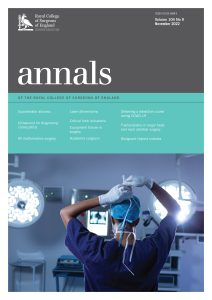After reading a paper published in The Annals of the Royal College of Surgeons of England last March, Andrew Thomas, an orthopedic surgeon in the UK, noticed that it was very similar to an article published the previous December in another journal.
He wrote a letter to the editor of Annals, notifying the journal of the similarity between its paper, “The possible effect of different types of ventilation on reducing operation theatre infections: a meta-analysis,” and “The effect of type of ventilation used in the operating room and surgical site infection: A meta-analysis,” published in the journal Infection Control and Hospital Epidemiology.
In his letter, Thomas pointed out several apparent mistakes in the analyses, and also noted similarities between both papers and a 2017 article published in The Lancet Infectious Diseases, which has been cited 93 times, according to Clarivate’s Web of Science.
Despite the similarities Thomas noted, which another surgeon verified with anti-plagiarism software, the journal has not retracted the paper, but flagged it with an expression of concern so readers can “draw their own conclusions.” At the same time, the journal retracted an unrelated article that was also found to be similar to one published elsewhere, then the retraction was changed to an expression of concern, and now neither notice appears online.
Continue reading ‘Just some eccentric guy in Australia’: The story of a non-retraction for plagiarism








